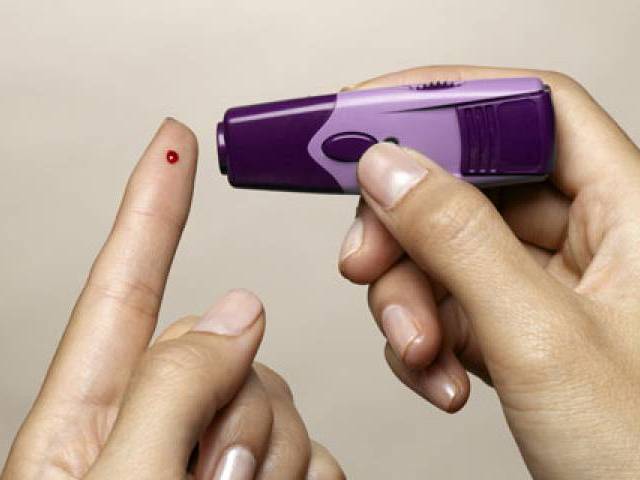
Teenagers as young as 13 to 15-years-old have now started developing type-two diabetes in Pakistan, experts claimed on Monday while advising people to revert to an active lifestyle by staying away from screens, resort to 40-50 minutes daily exercise and maintain a healthy and balanced diet to avoid getting the chronic illness.
"We are extremely depressed to see teenagers as young as 13 to 15 years of age developing type-two diabetes in Pakistan. Girls are more prone to develop type-two diabetes as compared to boys in Pakistan but we are seeing an increasing number of teenagers coming up with type-two diabetes in the country," Dr Nadeem Naeem, a consultant endocrinologist told the media following a diabetes screening camp at Karachi Press Club (KPC) on Monday.
The diabetes screening camp was organised by the Ehad Medical Centre in collaboration with 'Discovering Diabetes' project at KPC where club members, employees and their family members were screened for diabetes, blood pressure, uric acid, body mass index, bone mass density and cholesterol and consultant physicians were also present to offer consultation to the patients and pre-diabetics.
Dr Naeem said at least 20 out of 100 adults were living with diabetes but warned that due to a sedentary lifestyle and poor eating habits, youngsters and teenagers were also developing diabetes these days in the country, which was an extremely alarming situation.
Speaking about fasting in Ramazan, he said fasting is extremely good for overweight people, pre-diabetics and those who have recently been diagnosed with diabetes.
People with moderate and severe diabetes should consult their physicians prior to start of holy month of Ramadan so that their medicines and diet could be adjusted in accordance with their health conditions. "I also want to tell people that if their sugar level drops below 70, they should break their fast while if their sugar level is above 300, they should also break their fast. Testing sugar and getting insulin is permissible while fasting", he added.
Eminent public health expert and Chief Executive Officer (CEO) of the Ehad Medical Center Dr Babar Saeed Khan said they have come up with a Discovering Diabetes project where people can call on a helpline to get free consultation and screening of diabetes.
To a query, he said Ehad Medical Centre is a patient-centric health solution where they have introduced the concept of virtual health where patients are provided medical consultation online, while severely sick patients are also treated at their homes.
Dr Anam Dayem, lead of tele-health at Ehad Medical Centre, said over 250 people were dying daily in Pakistan due to complications of diabetes in Pakistan, which is much more than the deaths due to Covid-19 in the country.
"There is an urgent need to create awareness about this disease and promote telemedicine and tele-health facilities to provide health services to the majority of people", she said.


















COMMENTS
Comments are moderated and generally will be posted if they are on-topic and not abusive.
For more information, please see our Comments FAQ